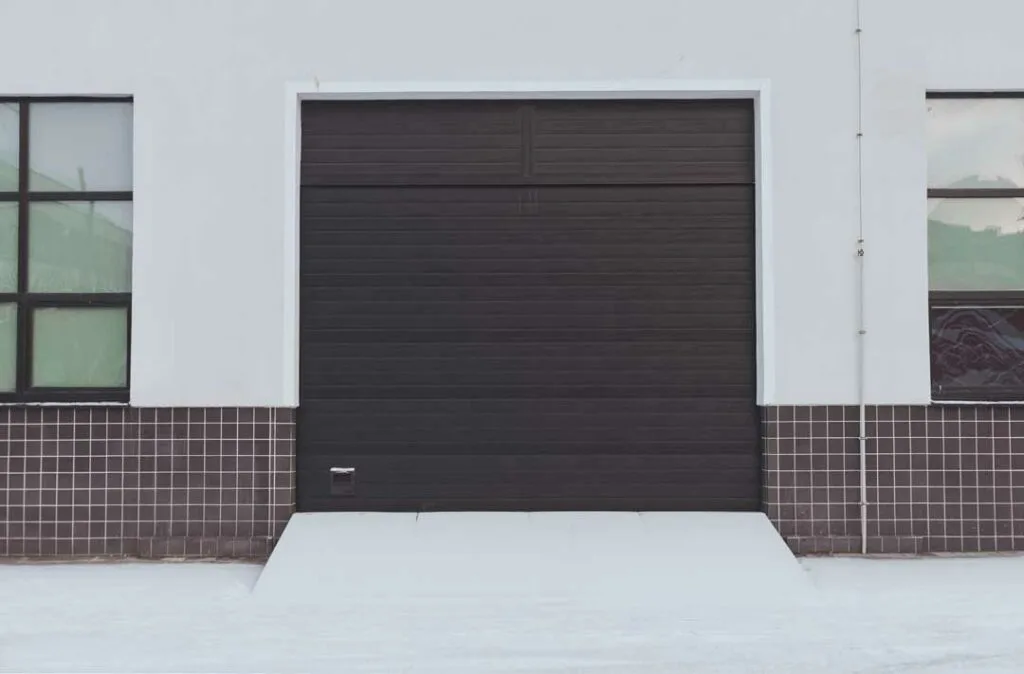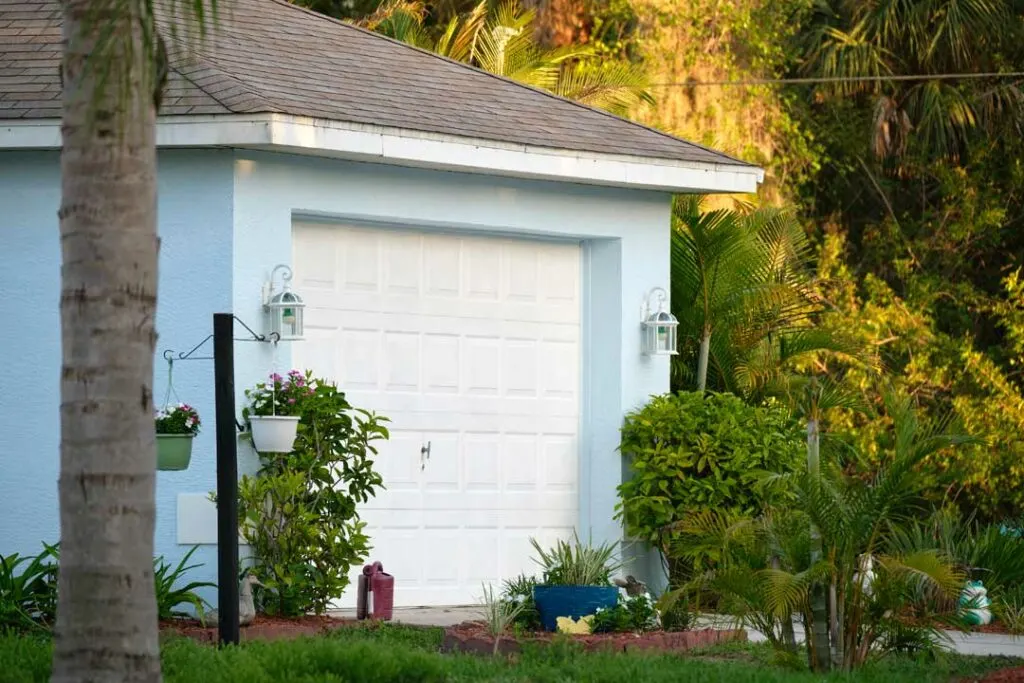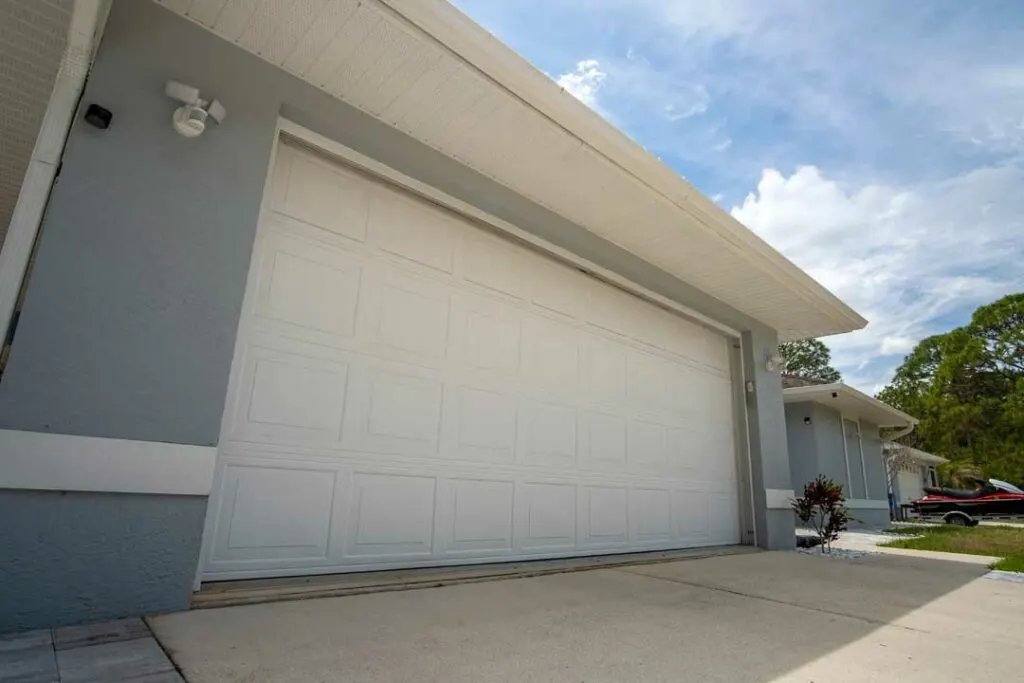Want a comfortable, efficient home? Garage door insulation is the key to energy savings, durability, and year-round comfort.
Many homeowners overlook their garage doors when improving energy efficiency. However, garage door insulation is a game-changer, offering comfort, energy savings, and durability for your home. Let’s explore why it’s essential.

Garage Door Insulation Guide: Boost Energy Efficiency and Comfort
When it comes to improving your home’s energy efficiency, your garage door might not be the first thing that comes to mind. However, for homeowners in Florida, where temperatures can soar into the 90s during summer, insulating your garage door can significantly impact your energy bills and comfort.
Insulated garage doors help regulate temperature, provide noise reduction, and even extend the lifespan of your garage door components.
But does insulating garage doors help? Absolutely! But you have to pick the best garage door insulation and a company like TLS Energy Savers to get promising results. Here’s how a good insulation can do a wonderful job;
Regulate Extreme Temperatures All Year Round
Whether you’re battling the sweltering Florida heat or experiencing the cooler winter months, garage door insulation plays a critical role in keeping your garage and by extension, your home comfortable.
- Best for warm climates: Keeps garages cool, especially in Florida summers.
- Best for cold weather: Provides a barrier against heat loss, keeping the space warm in winter.
Temperature Differences

On average, an insulated garage door can maintain the garage 10-20°F cooler in summer and 10-12°F warmer in winter. If your garage is attached to your home, this can significantly impact the temperature inside adjacent rooms.
Garage door insulation temperature difference can also reduce the workload on your HVAC system, leading to reduced energy bills.
Enhanced Energy Efficiency
Many homeowners overlook the impact of an uninsulated garage on their energy bills. The U.S. Department of Energy estimates that homeowners can reduce their energy consumption by up to 20% with proper insulation.
- Value for money: Insulated garage doors provide year-round energy savings.
- Best for garages attached to homes: Helps keep the entire home energy-efficient.
Why Insulate Garage Doors?
An uninsulated garage allows heat to escape during winter and floods your garage with hot air during the summer, increasing your cooling and heating costs.
By installing proper insulation, you can prevent these inefficiencies.
Increased Durability and Lifespan of Your Garage Door
Insulated garage doors tend to be more durable than their non-insulated counterparts. The added layers of material not only increase energy efficiency but also reinforce the door’s structure.
- More durable: Resistant to dents and impact.
- Improved door lifespan: Reduces wear and tear on door mechanisms due to temperature fluctuations.

Does insulation work?
Yes, it’s not just about temperature control; it also extends the lifespan of your garage door, reducing maintenance costs.
Noise Reduction for Quieter Operation
Insulating your garage door can drastically reduce the noise from both inside and outside your garage. Whether you’re trying to keep noise out or reduce the sound of the garage door operating, insulation provides a solution.
- Best for reducing external noise: Ideal if your garage faces a busy street.
- Noise-canceling properties: Reduces vibrations from the door operation.
This is especially helpful in homes with attached garages, where noise can easily travel into living spaces.
An insulated door can reduce noise by up to 30-40%, making it a perfect choice for busy neighborhoods.
Better Protection for Stored Items

If you use your garage for more than just parking cars, insulation can help protect your belongings. Extreme temperatures can damage tools, furniture, or appliances stored in your garage.
- Best for protecting stored items: Keeps a stable temperature to avoid damage.
- Ideal for workshops or home gyms: Provides a comfortable working environment year-round.
By keeping the garage temperature stable, you avoid the risk of condensation, which can lead to mold and rust on metal objects or electronics.
Health Benefits: Reducing Allergens and Moisture
An insulated garage door can also protect you and your family from harmful allergens and moisture buildup. Without proper insulation, moisture can seep in, leading to mold growth, which poses serious health risks.
- Moisture protection: Keeps out humidity, reducing the risk of mold and mildew.
- Allergen barrier: Reduces the infiltration of dust, pollen, and other allergens.
A well-insulated garage helps keep the space clean and dry, which is crucial for households in high-humidity areas like Florida.
Which Garage Door Insulation is Right for You?
Choosing the best insulation depends on your climate and needs. Here’s a quick comparison of popular garage door insulation materials:
| Insulation Type | Best Use Case | Practicality | Lifespan | Cost |
| Fiberglass | Standard garages | Easy to install | 15-20 years | $$ |
| Rigid Foam Board | Best for extreme heat/cold | High insulation value | 20-30 years | $$$ |
| Reflective Insulation | Hot climates with radiant heat | Moderate effectiveness | 10-15 years | $ |
| Cellulose | Eco-friendly garages | High R-value but requires professional installation | 20-30 years | $$$ |
So, The Bottom Line: Why Garage Door Insulation Matters (Actually)
Investing in garage door insulation isn’t just about making your garage more comfortable—it’s about increasing the efficiency, durability, and overall value of your home.
Whether you’re trying to cut down on energy costs, protect valuable stored items, or simply keep your home more comfortable, insulation is a small investment with long-lasting rewards.
So, if you’re wondering, “does insulation go bad?” or “is replacing insulation worth it?”—the answer is yes, but only if you have chosen the right material and installed it correctly.

FAQs:
Yes, insulation helps regulate your garage’s temperature by keeping out the extreme Florida heat.
An insulated garage door can maintain a 10-20°F difference during hot weather, improving comfort.
Yes, proper garage door insulation enhances energy efficiency, which adds value to your home.
Rigid foam board is ideal for colder climates, offering high insulation value and durability
Depending on the material, garage door insulation can last anywhere between 15-30 years.

Jessi is the creative mind behind The Coffee Mom, a popular blog that combines parenting advice, travel tips, and a love for all things Disney. As a trusted Disney influencer and passionate storyteller, Jessi’s authentic insights and relatable content resonate with readers worldwide.
